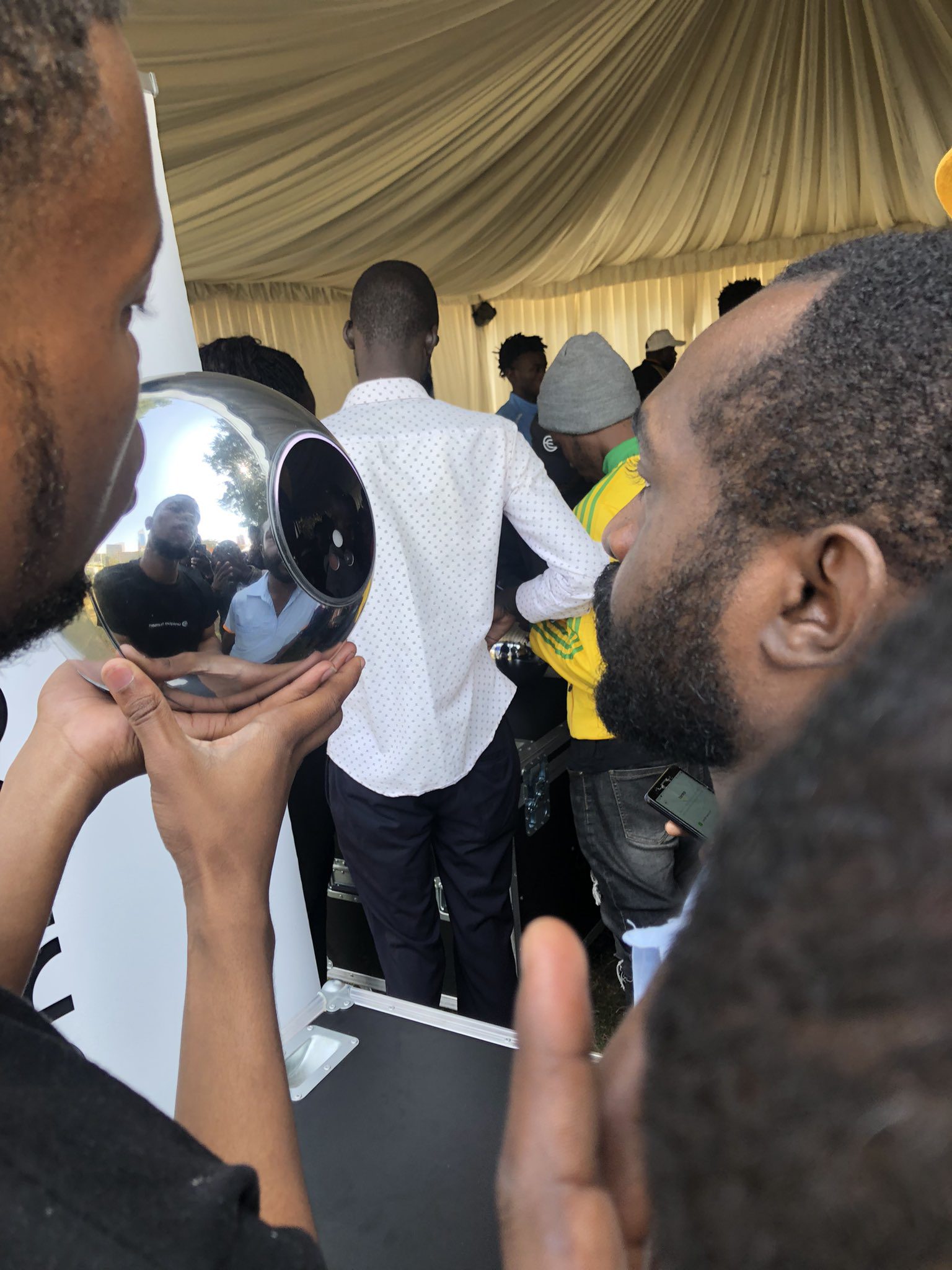Worldcoin, a cryptocurrency founded by Sam Altman, yesterday encountered its first significant obstacle in Africa when Kenyan authorities banned its iris-scanning operations (also known as “proof of personhood verification”) due to security, privacy, and data protection concerns.
Now, Worldcoin claims that it is coordinating with the necessary authorities to quickly resume iris scans in Kenya. Worldcoin said it was taking the “pause” to develop improved onboarding procedures and crowd control strategies in a statement provided to TechCrunch. Additionally, this is done while“work[ing] with local officials to increase understanding of the privacy measures and commitments Worldcoin implements.”
Kenya’s Ministry of the Interior and National Administration recently put a halt to Worldcoin’s operations, including those of its local affiliates, due to concerns about the “authenticity and legality” of the company in the areas of security, financial services, and data protection. According to reports, it is coordinating with the appropriate authorities to determine the security and protection of the collected data being gathered and how Worldcoin plans to use it.

Kenya has the biggest economy in East Africa. It was one of the first nations where Worldcoin started sign-ups, and as of right now, it’s one of the major markets for adoption. In order to create what it calls a new “global human identity and financial network,” Worldcoin has begun scanning irises with its specialized “Orb” equipment and offering its own cryptocurrency as an incentive. Sam Altman, the CEO of OpenAI, founded the company with a co-founder, and it has raised over $500 million in funding, including $115 million from Blockchain Capital earlier this year.
“Demand for Worldcoin’s proof of personhood verification services in Kenya has been overwhelming, resulting in tens of thousands of individuals waiting in lines over a two-day period to secure a World ID,” the organization said in a statement.
“Out of an abundance of caution and in an effort to mitigate crowd volume, verification services have been temporarily paused.”
With 18 total locations as of last week, Kenya was one of the nations with the most locations for eyeball scans. As a result of Orb operators moving their stations to Nairobi’s Kenyatta International Convention Centre to accommodate the hundreds of passengers coming in, there is now only one listed. (It is unclear how this change will affect the “Orb operator” business model. According to Worldcoin, “You’ll earn money for everyone you join up with an Orb as an operator. You’ll create your own team, manage your business, and encourage others to begin using Worldcoin.
Also, see: Meta starts blocking the news in Canada — its latest standoff with publishers
Locals who had received tokens in exchange for scans could sell them for USDT (the stablecoin pegged to the U.S. dollar) on cryptocurrency exchanges after last week’s global official launch, or to “brokers” in exchange for cash. This “free money” claim quickly circulated throughout Kenya, resulting in a large influx of individuals at the recruitment (Orb) stations and attracting the attention of government organizations.
What does the Kenyan Data law have to say?
Yesterday, a number of organizations, including the Office of the Data Commissioner, expressed concerns about Worldcoin, citing issues such as a lack of clarity on data security and the use of financial inducements to gather biometric data. Despite the fact that the nation’s ICT minister, Eliud Owalo, said that Worldcoin’s operations in Kenya were legal, this is the case.
The authorities also expressed their displeasure that massive citizen data [was] in the hands of private actors without an appropriate framework. Worldcoin informed that it has been exchanging information with the office of the Data Commissioner for more than a year and is registered there as a data processor.
Also, see: Amazon now delivers fresh groceries to non-Prime members in selected US cities
Kenyan data privacy law is reportedly based on the EU’s GDPR and is fairly precise. In Kenya, businesses processing personal data must register as data controllers or processors. An entity or person who chooses the reason for and methods of processing personal data is known as a controller. A processor may manage data on behalf of another company even though they do not always gather it or decide how to utilize it. TechCrunch received confirmation from Worldcoin that it is listed as a processor.
The provision is a part of Kenya’s Data Protection Act, which ensures that customer data is used legally, limits the amount of information gathered, limits its sharing and further processing, and protects the security of the data. Additionally, the law mandates that businesses obtain users’ consent before collecting any data and make clear why it is being done.
Additionally, it specifies that organizations must process the data through a Kenyan data server or retain a serving copy on local soil. Additionally, organizations that transmit data beyond the nation are only permitted to do so on a few accounts that also involve the authorization of the data subject.



















